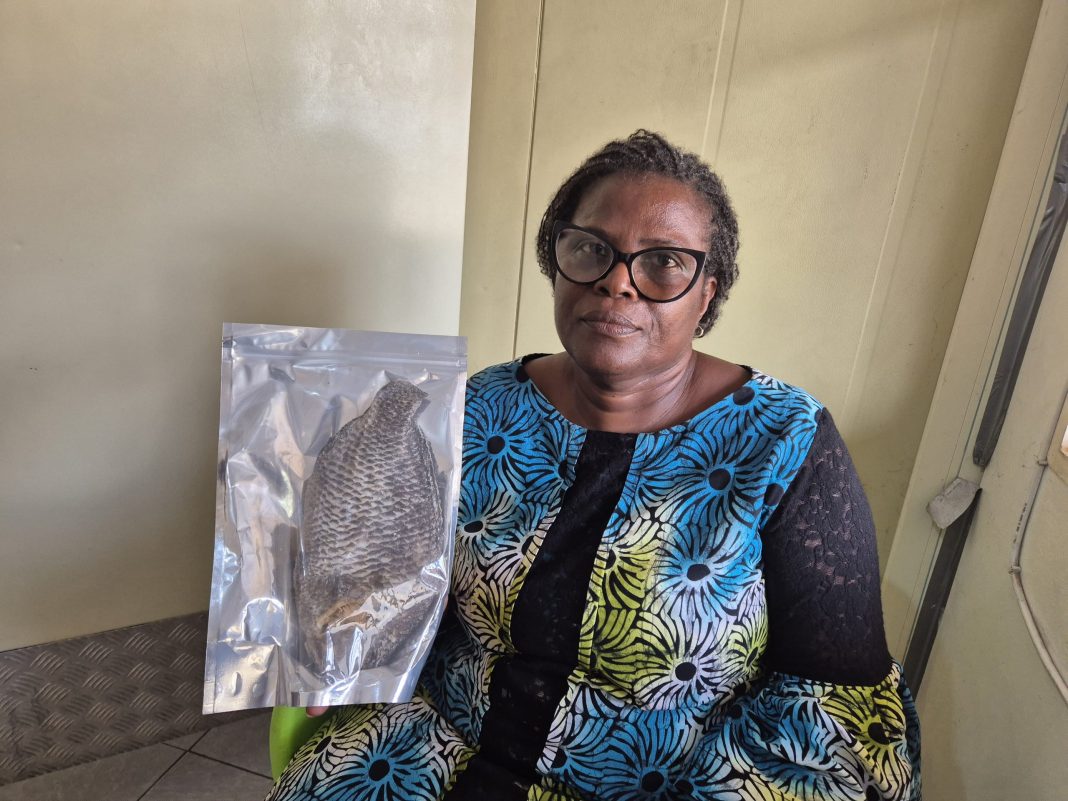By Laudia Sawer
Sakumono, June 09, GNA- Fish, over the years, have provided Ghanaians with affordable proteins, with statistics from the Ghana Statistical Services indicating that Ghanaians consume between 20 to 25 kilogrammes per person annually, significantly above the global average.
The fisheries and aquaculture sector provides both direct and indirect jobs and contributes to the country’s Gross Domestic Product (GDP), job and wealth creation, and food and nutrition security.
The average contribution of the sector to GDP and agriculture GDP for the period 2015-2020 is estimated at 1.1 per cent and 5.4 per cent, respectively (Fisheries Commission, 2021).
Aquaculture production in Ghana is documented to amount to nearly 133 metric tonnes in 2021. Tilapia and catfish are the two most common species of fish in aquaculture production in Ghana, with the country seeing the production of about 68,700 metric tonnes of tilapia and 20,660 metric tonnes of catfish.
Despite the increasing tonnage in aquaculture production, fish processors such as Mrs Mabel Ibidun Quarshie, the Chief Executive Officer of Acquatic Foods Limited, are lamenting the inconsistencies in getting the required aquatic fish to process.

Mrs Quarshie, who processes tilapia and catfish not in the conventional way of smoking like most women processors do, told the Ghana News Agency (GNA) in an interview that getting supplies that meet her specifications for processing was a big challenge.
She processes tilapia into fish crackers, fish sausage, boneless kobi, kobi powder, kobi in oil, and kobi chunks; and catfish into fish jerky (a fish chewing snack).
She said while it was easy to get the right tilapia sizes, it was extremely difficult to get big catfish to get the fillet to be processed into the jerky.
She explained that most catfish farmers do not grow their fish to be big as they think doing so meant incurring cost.
“If I want tilapia, it’s easy, but if I want catfish, even though you see a lot of people making catfish, it’s not that easy to get the sizes that I want because I need the fillets.
These catfish farmers are always willing to smoke them when they get 600 to 800 grams; the more they feed them, the more they incur costs,” she lamented.
She added that “I don’t get the big meaty ones that, when I take, I can get what I need, and you cannot also have a regular supply from one person because they are always doing one cage; they finish it and sell it before they start another cage.”
She said in most cases, “You get used to somebody who understands your needs, and the next moment, they say their fish has finished and now are going to start another one, and now you have to look for another source; sometimes you go and don’t get the size you want.
Mrs Quarshie added that another challenge had to do with breaking into the market with a novel product like fish jerky, fish crackers and fish sausages which were new to Ghanaians.
She recounted that “it’s a new product, and I need to talk a lot. I must do a lot of sampling just for people to believe that what I am using is fish; otherwise, I don’t exist. Convincing them that even though it is fish, it is not nauseating is a big challenge.”
She said technical expertise also existed, throwing a challenge of innovation to micro, small, and medium-scale enterprises (MSMEs) like hers and explained that when she started experimenting producing fish sausage, it was difficult to get the technical expertise on how to get the fish to bind like meat sausages.
“It’s recently that fish processing is coming out with a lot of products; initially it wasn’t easy, and I had to do it myself,” she added.

She said in addition to the sector-specific challenges, her outfit faced almost all the challenges the other small-scale businesses face, such as funding and despite all the challenges, her experience with the Food and Drugs Authority (FDA) was not as tedious as other business operators had recounted, as she did her research and consulted others on the requirements, which she followed.
She encouraged other MSMEs to research into what they want to invest in and not to be afraid to venture into untapped areas, as consistency and commitment would bring them success in their chosen field.
GNA
Edited by George-Ramsey Benamba
